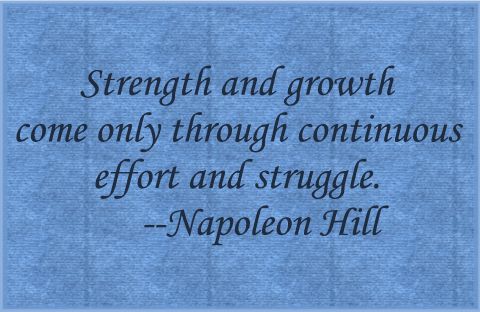We are surrounded by advice and expectation that all we have to do to succeed at any goal is to “do our best.” Follow a certain formula or step-by-step process and do it with your full attention and intention, and you will see your goal fulfilled. It’s a good presumption. And it works some of the time.
But what do you do when it doesn’t? When you’ve given your all to a project or solution, but it falls short. The formula for success looming at some out-of-reach height now turns sour. Taunting you with negative self-talk and disappointments.

That defeat can seem incredibly large and insurmountable. Spilling over into other goals and actions. Sabotaging your motivation.
We all tend to be harder on ourselves than anyone else would be. But take heart. There are measures you can take to overcome and get back on track.
Back Off on Your Own Criticism
No one is perfect. Yet this is the standard we all seem to set for ourselves. And when we don’t perform as we think we should, we back ourselves into the “I’m just substandard” corner. Followed inevitably by the worst criticism anyone could level at us. We are our own worst nightmare. Our own worst critic.
Why do we do this? There is no good reason for it. As if berating ourselves would change the outcome in some way. Or change us into the perfection marvel we aspire to. It won’t happen. And all we accomplish when we get down on ourselves is feeling worse about ourselves than before.
Stop. When you find yourself doing this, make a conscious effort to still the inner critic. Kill it if you can. It is not your friend.
Reframe Your Situation
Once you’ve silenced the inner critic, you can objectively look at the situation. As you do, remain flexible. Remind yourself that there is a reason for everything. Generally, that means something better if on the horizon. Remembering this helps to put the situation in perspective.
As you look at it, consider what might not have been optimal if you had succeeded in your original plan. Ask yourself some mind-changing questions:
- How can I see this differently?
- What assumptions and limiting beliefs do I need to change?
- How can I turn this experience into something positive?
Gather the Lessons You’ve Learned from the Situation
Through the darkness, you’ll find light. The only way to learn how to move forward is to experience the future. We make the most of this when we learn from our mistakes. As we move forward, changing our behavior based on what we’ve learned from those mistakes creates momentum in the right direction. Making the same mistakes repeatedly leads nowhere.
When failure strikes, take an unbiased, analytical look at what went wrong. Talk to experts, research how you could’ve gone in a nonproductive direction, study alternatives. Get to the bottom of why your course went awry.
When you do your reframing, add this question to your analysis: How can I take what I’ve learned and grow from the experience?
Growth cannot happen without failure. The key to getting past it, is to turn off the harsh criticism, reshape the experience, and learn from your mistakes going forward.
One final note: Everyone has setbacks. How you deal with them shows the strength, or lack of it, in your character. Winston Churchill said, “Success is the ability to go from one failure to another with no loss of enthusiasm.” Use these steps to keep your enthusiasm strong. You’re worth the effort.
Copyright 2021, Monica Nelson

